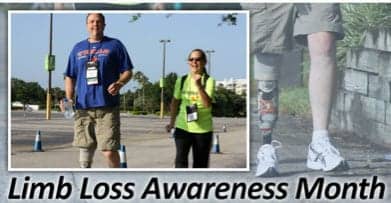The National Institutes of Health (NIH) has renewed a five-year grant for $5 million for the Alliance for Regenerative Rehabilitation and Training (AR3T) to continue its work expanding scientific knowledge, expertise and methodologies focused on science and regenerative medicine.
AR3T is a multi-institutional network of laboratories at the University of Pittsburgh, Stanford University, Mayo Clinic and the University of Texas at Austin, a media release from Health Sciences at the University of Pittsburgh notes.
“The research we have supported has launched exciting new collaborations and innovative lines of investigation, which have led to numerous publications and larger-scale grants. With this new grant cycle, we plan to build upon our previous successes while continuously adapting to better meet the changing needs of our community. We will do this through an online webinar series, a junior scholars program, pilot funding incubator programs and so much more.”
— Fabrisia Ambrosio, PhD, MPT, associate professor, Department of Physical Medicine and Rehabilitation, Pitt School of Medicine
AR3T integrates regenerative medicine with rehabilitative medicine to increase the efficacy of interventions designed to help people with disabilities be more independent and engaged. AR3T has reached experts in the spinal cord, orthopaedic, regenerative medicine, rehabilitation, neuroscience, sports medicine and exercise research, military health and clinician communities.
“At its core, AR3T exists to promote collaboration,” Ambrosio adds, in the release. “We help create new connections that have the potential to lead to the next breakthroughs in regenerative rehabilitation research. The long-term goal is to convert these research advances into meaningful therapeutic options for our patients.”
In addition to Ambrosio, Michael Boninger, MD, professor, Department of Physical Medicine and Rehabilitation, Pitt School of Medicine, and Thomas A. Rando, MD, PhD, professor, Department of Neurology and Neurological Sciences at Stanford University, are the co-principal investigators.
[Source(s): Health Sciences at the University of Pittsburgh, Newswise]
Related Content:
NIH-Funded Research Explores Potential of Music Therapy
Flint Rehab Receives Additional NIH Funding for FitMe Stroke Device
NIH Grant Spurs Development of Bioengineered, “Living” Robotic Hand





